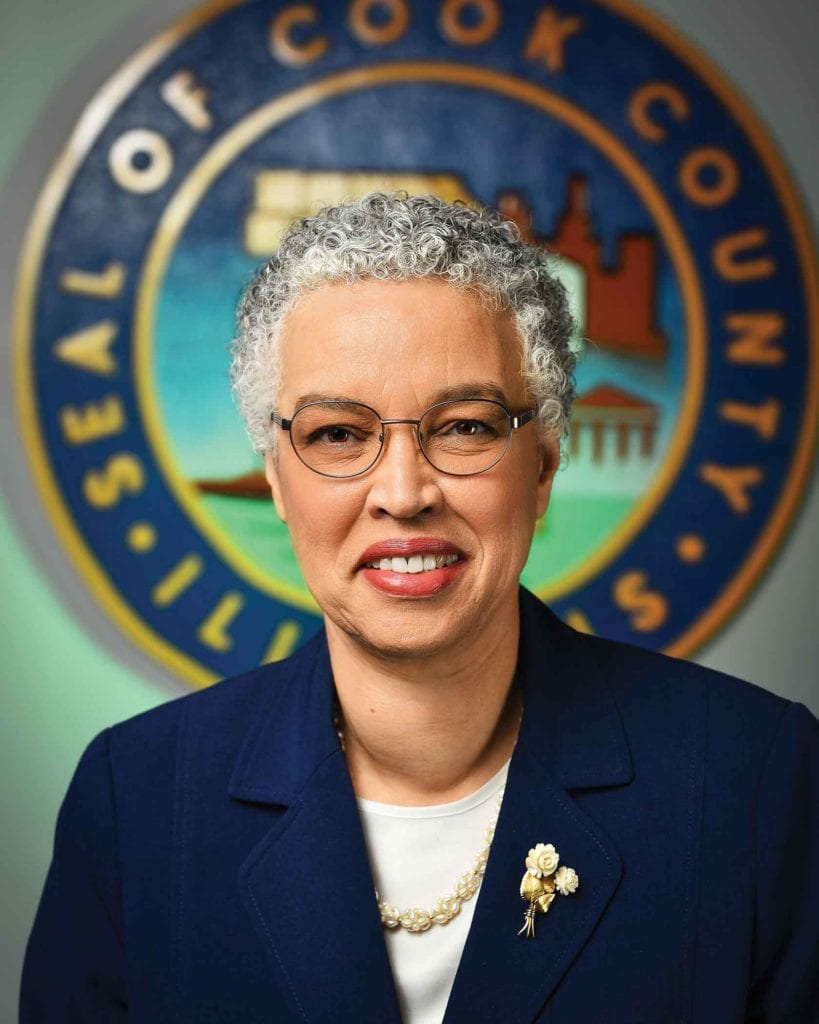
The scene hardly had the look of history being made. On an Election Day with low turnout, the voting booths stood empty. Outside, the surrounding blocks in Chicago’s Rogers Park neighborhood were mostly quiet except for the sound of the bitterly cold wind.
On a nearby corner, Maria Hadden, the challenger for alderman of the city’s 49th Ward, waited to greet voters. Finally, a compact man in a heavy coat approached. He proudly told Hadden he had lived in Rogers Park for 30 years and was going to vote for her. They shook gloved hands.
In Hadden’s view, the race came down to whether residents felt their neighborhood would remain vibrant and affordable.
“Will we keep our economic and racial diversity?” she said. “Is the current leadership able to maintain that, or do we need new leadership?”
That evening, as totals streamed in, it became clear that voters demanded a change. Hadden overwhelmed Joe Moore, a 28-year incumbent, with 64 percent of the vote. She became the first openly queer black woman elected to the City Council, and one of the first black aldermen ever to come from the North Side.
Hadden’s victory was widely seen as one of the biggest upsets in Tuesday’s elections. But it actually reflects broader local and national political trends in the battle over the future of the Democratic Party.
Residents across Chicago worry they can no longer afford to live or invest in the city. As Mayor Rahm Emanuel tries to win approval for several massive new development projects before he leaves office in May, many voters are outraged at the idea of using public money to subsidize them. At the same time, residents in some neighborhoods remain desperate for development. Organizers north and south are campaigning to lift a state ban on rent control and build more affordable housing.
The 14 candidates for mayor all agreed on one point: To confront these challenges, Chicago didn’t need anyone like Emanuel. Most tried to distance themselves from his record of school closings, Wall Street campaign contributions and insider ties, touting themselves as progressives.
Of course, the two top finishers have their own ties to the political establishment. Toni Preckwinkle is the Cook County Board president and chair of the county Democratic Party. She also accepted fundraising help from 50-year Alderman Ed Burke, of the 14th Ward, who’s facing federal extortion charges. Preckwinkle has since repudiated Burke, who was re-elected despite his legal problems. Lori Lightfoot, meanwhile, served in the mayoral administrations of Emanuel and his predecessor, Richard M. Daley.
Still, Preckwinkle and Lightfoot both tout their work on criminal justice reform, and they vow to pay attention to long-neglected parts of the city.
And as black women, they offer an obvious, visible break from the past. Chicago has elected one woman and one black man as mayor, but it has never been led by a woman of color. That 182-year streak is about to end.
Months ago, Moore sensed that his re-election bid in the city’s far northeast corner could be tough. He watched from afar as 28-year-old Alexandria Ocasio-Cortez toppled another Joe, longtime U.S. Rep. Joseph Crowley, in a diverse, liberal New York City district not unlike the 49th Ward. In the age of President Donald Trump, Democrats seen as compromising or shopworn are sometimes viewed as part of the problem.
Moore first won office in a runoff in 1991. For the next 20 years, he was one of the City Council’s leading critics of Daley. From 2007 to 2011, Moore sided with the mayor on just 51 percent of divided roll-call votes, the lowest rate in the council, according to an analysis by Professor Dick Simpson and other researchers at the University of Illinois at Chicago.
But when Daley retired and Emanuel took the reins, Moore became one of his closest council allies and his reputation as an independent withered. From 2017 to 2018, Moore voted with the mayor 98 percent of the time.
As Tuesday’s election neared, Moore reminded constituents of his progressive accomplishments: He helped bring community policing to Chicago; pioneered participatory budgeting, in which residents get to vote on how to spend infrastructure funds; and added affordable and public housing to the ward.
Hadden criticized Moore’s alliance with Emanuel. She targeted him for accepting campaign contributions from developers and landlords while many residents struggled to remain in the gentrifying area.
By Tuesday afternoon, Hadden thought she had a chance.
“But if nothing else, we’ve got new people voting, new people involved in the campaign, and we’re going to keep organizing,” she said. “In some ways, we’ve already won by putting the community’s vision first.”
Within a few hours, she had won the election, too.
ProPublica Illinois reporter Mick Dumke looks at the state’s political issues and personalities in this occasional column.






